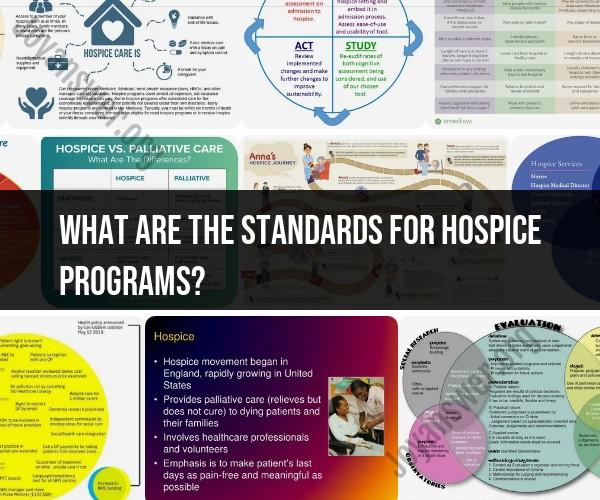What are the standards for hospice programs?
Hospice programs in the United States are regulated and accredited by various organizations to ensure the delivery of high-quality end-of-life care. These standards are in place to promote patient safety, comfort, and quality of life during the final stages of illness. Here are some of the key standards and regulatory bodies that govern hospice programs:
Medicare Conditions of Participation (CoPs): Hospice programs that wish to receive reimbursement from Medicare, which is a major source of funding for hospice care in the U.S., must adhere to the Medicare Conditions of Participation. These conditions cover various aspects of hospice care, including patient assessments, plans of care, interdisciplinary team coordination, bereavement services, and quality assurance.
The Joint Commission: The Joint Commission is an independent, nonprofit organization that accredits and certifies healthcare organizations and programs. Hospice programs can seek accreditation from The Joint Commission, which involves rigorous assessments to ensure compliance with quality and safety standards.
National Hospice and Palliative Care Organization (NHPCO): NHPCO is a leading advocacy and educational organization for hospice and palliative care in the U.S. They provide guidance, resources, and best practices to hospice programs to help them maintain high standards of care.
State Regulations: Hospice programs are subject to state-specific regulations, which can vary from one state to another. State health departments and agencies oversee and regulate hospice services to ensure compliance with state laws and standards.
Ethical Guidelines: Hospice programs are expected to adhere to ethical guidelines and principles related to end-of-life care. Ethical considerations include respecting patient autonomy, providing honest and compassionate care, and ensuring informed decision-making.
Palliative Care Standards: Many hospice programs also provide palliative care services. In addition to hospice-specific standards, they must meet palliative care standards established by organizations such as the Center to Advance Palliative Care (CAPC).
Quality Reporting: Hospice programs are required to report data on various quality measures to regulatory agencies, including the Centers for Medicare & Medicaid Services (CMS). This data helps assess and monitor the quality of hospice care.
Interdisciplinary Care Teams: Hospice care is delivered by interdisciplinary teams that typically include physicians, nurses, social workers, chaplains, counselors, and volunteers. Standards emphasize effective teamwork and communication among team members to provide comprehensive care.
Patient and Family-Centered Care: Hospice standards prioritize the comfort and well-being of patients and their families. Care plans should reflect the unique needs and preferences of each patient and their loved ones.
Bereavement Services: Hospice programs are required to offer bereavement services to support families and loved ones after the patient's death. These services may include counseling, support groups, and educational resources.
It's important to note that while hospice programs must meet these standards, the specific implementation of care may vary from one program to another. Patients and their families are encouraged to ask questions and seek information about the standards and practices of the hospice program they are considering to ensure it aligns with their needs and values.












